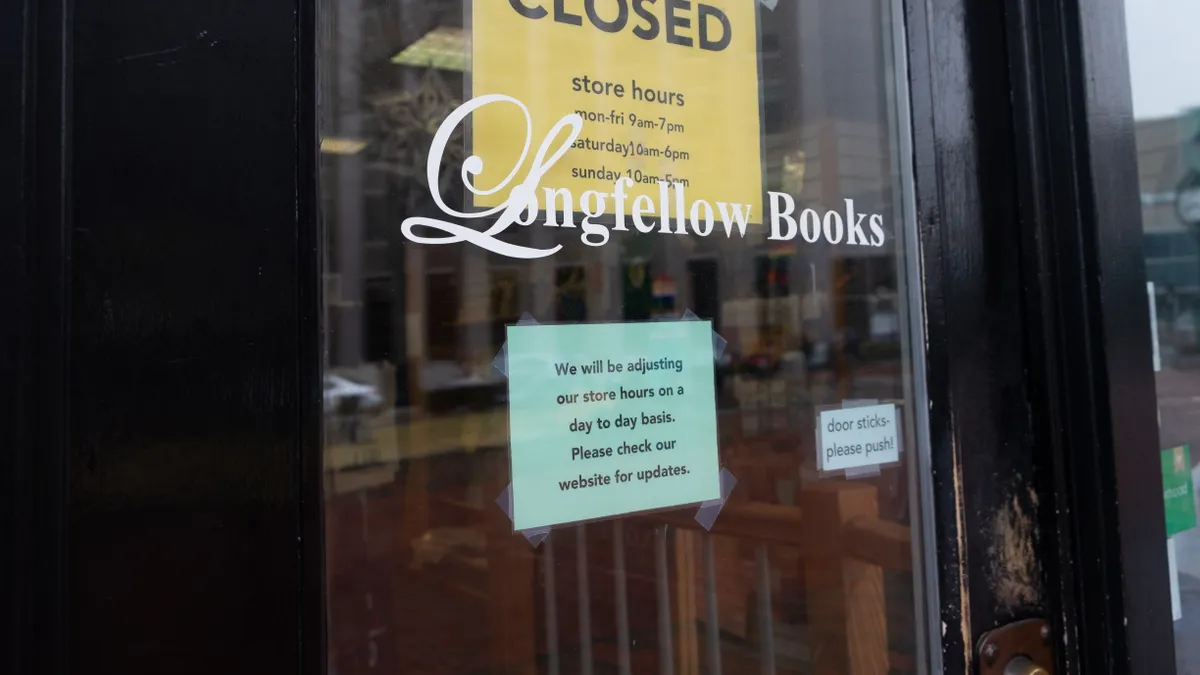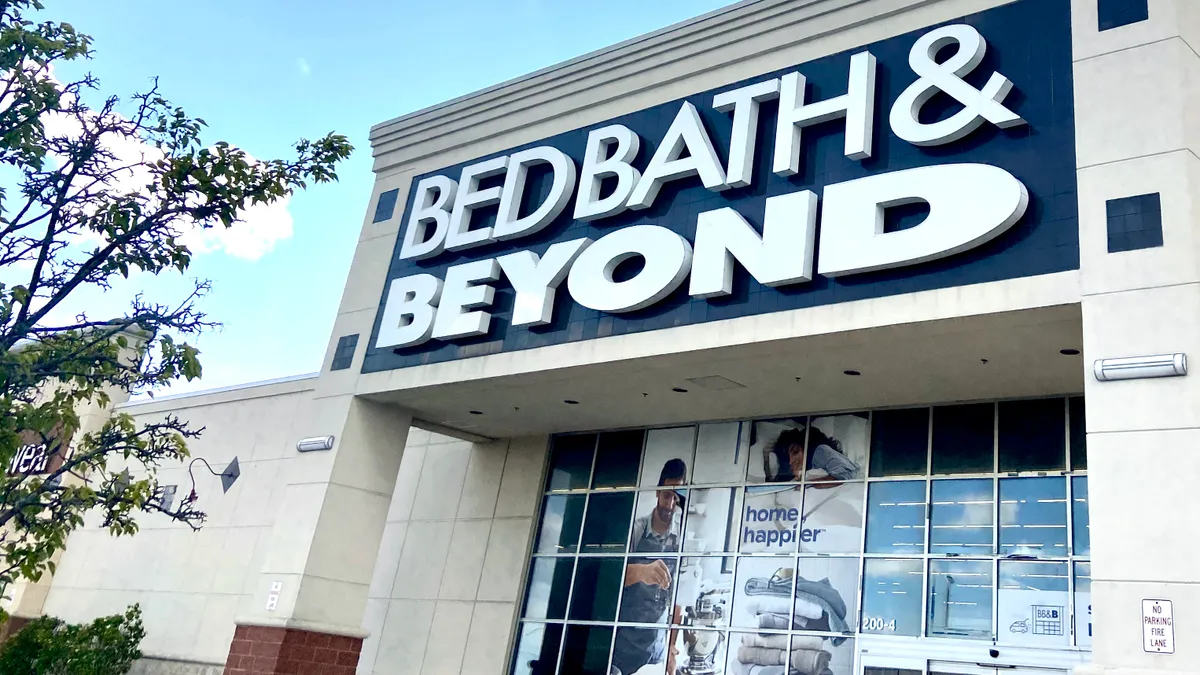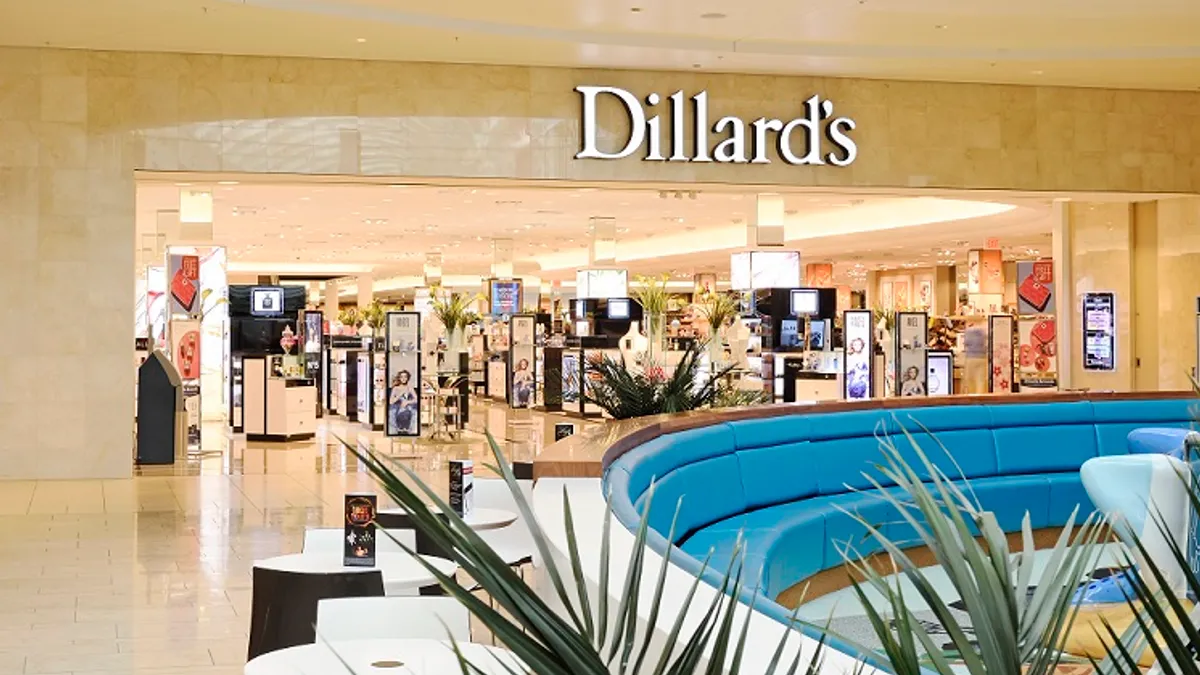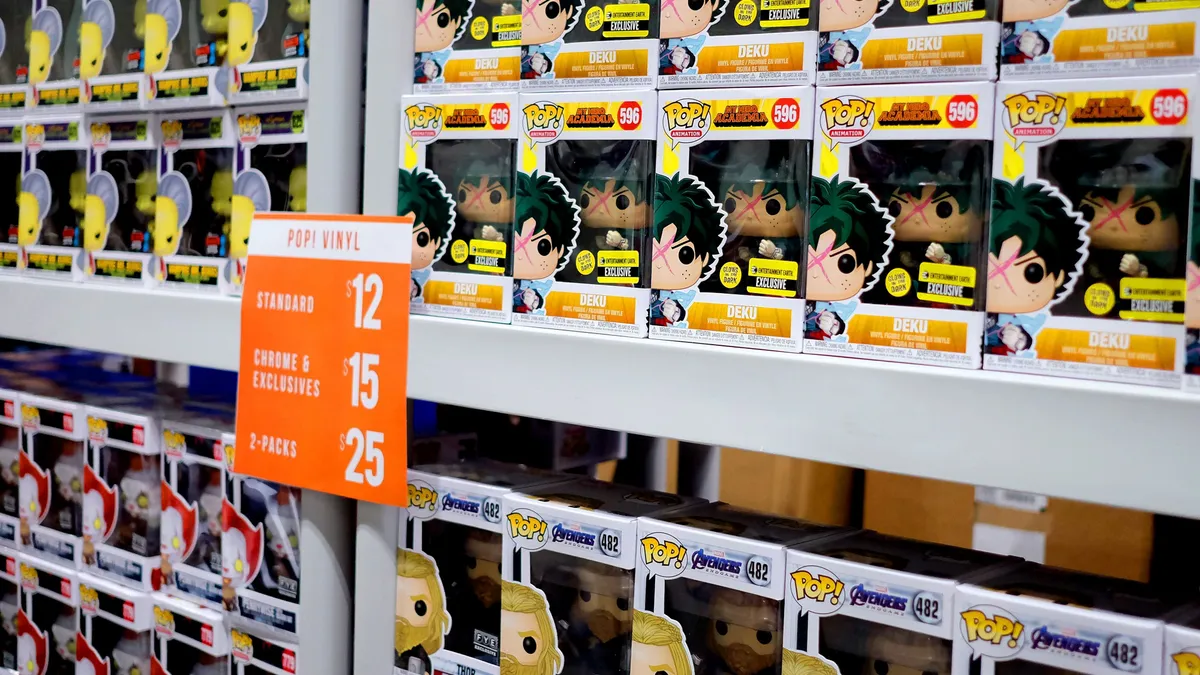Tens of thousands of shops have temporarily shuttered across the country — either by choice or government mandate — in an attempt to help stem the spread of the coronavirus.
It's not a bright picture for retailers. While Dick's Sporting Goods reopened two stores in Fresno, California, and PetSmart reopened its in-store grooming salons in some states, nonessential retail largely remains closed for the foreseeable future.
E-commerce has seen an uptick, but analysts are skeptical that it will make up for sales lost due to store closures.
Cowen analysts said department stores have about five to eight months of liquidity before a cash crunch becomes a risk factor. J.C. Penney has about eight months of available cash, Macy's has about four and a half months and Kohl's has about five months, according to Cowen's analysis. The analysts previously pegged Nordstrom at about seven months but have since revised their forecast to one year.
Nordstrom last week in a filing with the Securities and Exchange Commission said its "financial situation could become distressed" if it's forced to keep stores closed for an extended period of time, and if the economy sees major impacts from the pandemic.
The pandemic puts retailers in a tough spot. Nonessential stores are closed to protect employee and consumer safety. Several retailers with closed stores have indicated they will reopen locations based on guidance from government and health officials.
And even when stores do open again, consumers may not be eager to go into physical locations — whether because of lingering fears of infection or as a result of the economic impacts of the pandemic. Simeon Siegel, managing director at BMO Capital Markets, previously told Retail Dive that the longer the pandemic's impact lasts, "the more lingering the fear and the more evolution there will be of consumer processes."
Consumers may be reluctant to return to previous shopping habits, according to a Morning Consult study, which surveyed 2,200 U.S. adults between April 7 and April 9 and found that 24% of consumers said they wouldn't feel comfortable shopping in a mall for more than six months, 16% said they would feel comfortable in the next three months and only 4% said they would in the next month.
The discussion forum on RetailWire asked its BrainTrust panel of retail experts the following questions:
- What factors should determine when non-essential stores reopen for business?
- What changes, if any, do you expect to see in these locations when they finally reopen?
Here are eight of the most insightful comments from the discussion. Comments have been edited by Retail Dive for length and clarity.
'Public health and safety must come before commerce'
Mark Ryski, Founder, CEO & Author, HeadCount Corporation: Stores should open when public health leadership says it's safe to do so — not politicians. Public health and safety must come before commerce. Retail workers are dying to help people buy essentials, which is tragic enough — should we ask retail workers to risk their lives over a sweater? A pair of shoes? When stores do open, they will do so slowly and carefully. The fact is, store traffic will be slow to come back anyway, given the financial carnage this crisis has placed on most consumers.
Retailers and shoppers alike may adopt protective gear for some time
David Naumann, Vice President, Retail Marketing, enVista: There are several factors that will determine when non-essential stores will reopen for business. First, retailers will need to wait to open stores in specific states until governors lift the current restrictions on each state. This will likely not be a nationwide decision. The decisions will be complicated and based on more testing and a dramatic decrease in new COVID-19 cases.
Once non-essential retailers are given the "green light" in a given state, they will probably be operating under some new rules, at least initially. I suspect that retail associates may be required to wear face masks and gloves and they will continue to practice social distancing. Consumers may be encouraged to wear mask and gloves initially, until health officials are comfortable with the level of new cases. It is going to be weird for a while, but at least retailers will begin to open their doors soon. Whatever officials determine "soon" is in their state.
It's likely reopening dates will vary throughout the country
Neil Saunders, Managing Director, GlobalData: This decision has to be based on the epidemiological data and so needs guidance from scientists. That said, it is likely that the opening dates will vary from state to state — as the infection curves vary from state to state.
No decision should be guided by what consumers happen to think in a survey. People are free to exercise their personal judgment about whether to visit a mall or not, but consumer preferences don't trump science.
Store traffic won't revert anytime soon until there is a vaccine
Cathy Hotka, Principal, Cathy Hotka & Associates: Until there's a vaccine, store traffic will look a whole lot different than it did before COVID-19. I just don't see stores re-opening widely for quite some time. Customers and associates alike will want to see clear guidelines on staying safe while shopping, and we're not there yet.
Retailers should focus on their digital fulfillment and operations
Brandon Rael, Director, Alvarez & Marsal: With essential businesses already struggling to keep up with the increased demands, protecting their front-line store associates and anxiety-fueled consumers, and without a horizon as to when the coronavirus will stabilize, it's very challenging to even think of a date when non-essential retail stores can reopen.
For the time being and for the safety of the store associates and consumers, non-essential stores should focus their operating and go to market models around digital fulfillment.
Leave reopening decisions up to the experts
Paula Rosenblum, Managing Partner, RSR Research: Do you really think we're qualified to answer this question? I don't, and I'm looking for someone who has a background in infectious diseases to opine. Not a politician, not a retailer, someone who actually knows what they're talking about.
I have my opinions, but I'm a retail analyst…
Demand for options like contactless payments and curbside payments will remain high
Nikki Baird, VP of Retail Innovation, Aptos: Looking at how China has gone about reopening non-essential retail, I think we can expect requirements to limit the number of people in the store, to create wide enough spaces for consumers to pass each other at socially-distant lengths, wear masks in stores, perform daily or even hourly deep cleans, and yes, even temperature checks before entering stores.
Based on Chinese consumer behavior, it looks like we can expect demand for contactless commerce to remain high, even as consumers come back to stores — ordering online or via mobile for going to the store, sustained use (at least in the short term) of home delivery or curbside pickup, and BOPIS that doesn't involve interacting directly with a store associate.
Retailers might also need to expect limited hours at first, or new staffing requirements — as governments increase their ability to rapidly ID someone who is infected and perform contact tracing, one potential impact is the need to quarantine an entire store staff that might've had contact. In China, retailers started instituting controlled shifts so that they aren't mixing different workers on different shifts. That way, if one shift was exposed, it doesn't potentially require shutting down the entire store.
Nonessential retailers can follow the lead of grocery, drug and mass merchant retailers
Brian Cluster, Director of Industry Strategy - CPG & Retail, Stibo Systems: It is highly dependent on the situation in specific regions of the country. We should also be cautious and mindful about reducing the chance of a second spike after businesses are open.
I would expect that the non-essential retailers are following and learning from the grocery, mass and drug retailers in terms of organizing the store, the checkout and putting precautions in place for store personnel and customers. We may see new cautions put in place such as temperature scans for all customers and requirements that everyone wears a mask for several more months.
The ultimate answer will come from our health officials with state and local government and will create hopefully clear guidelines to help non-essential retailers make this critical decision.





















